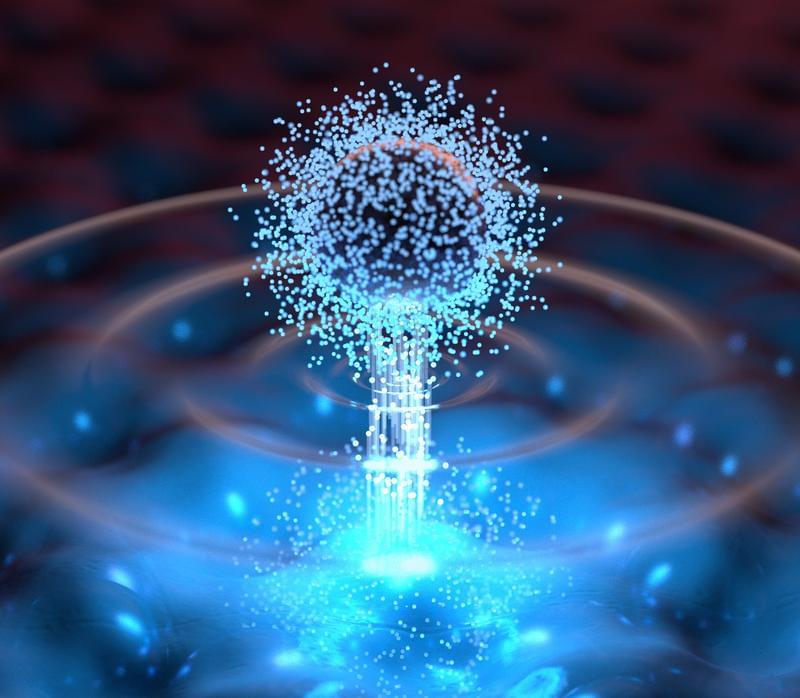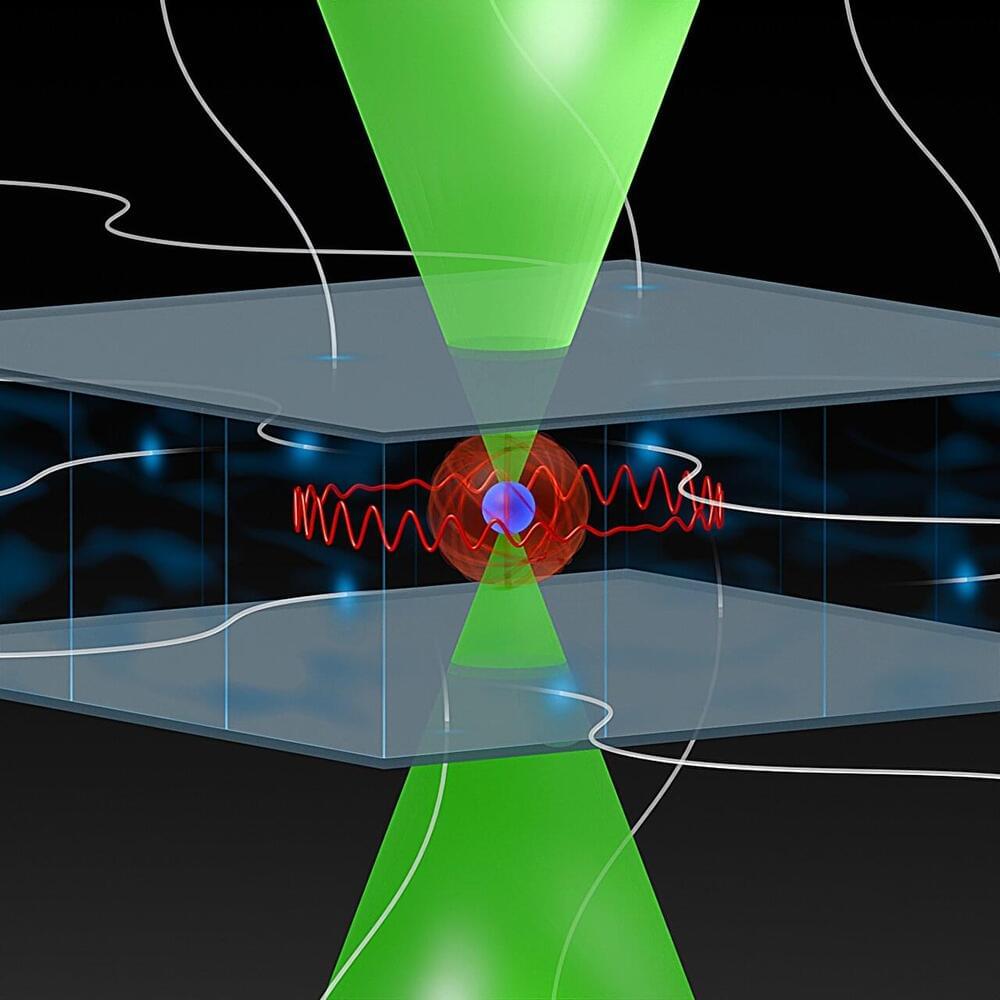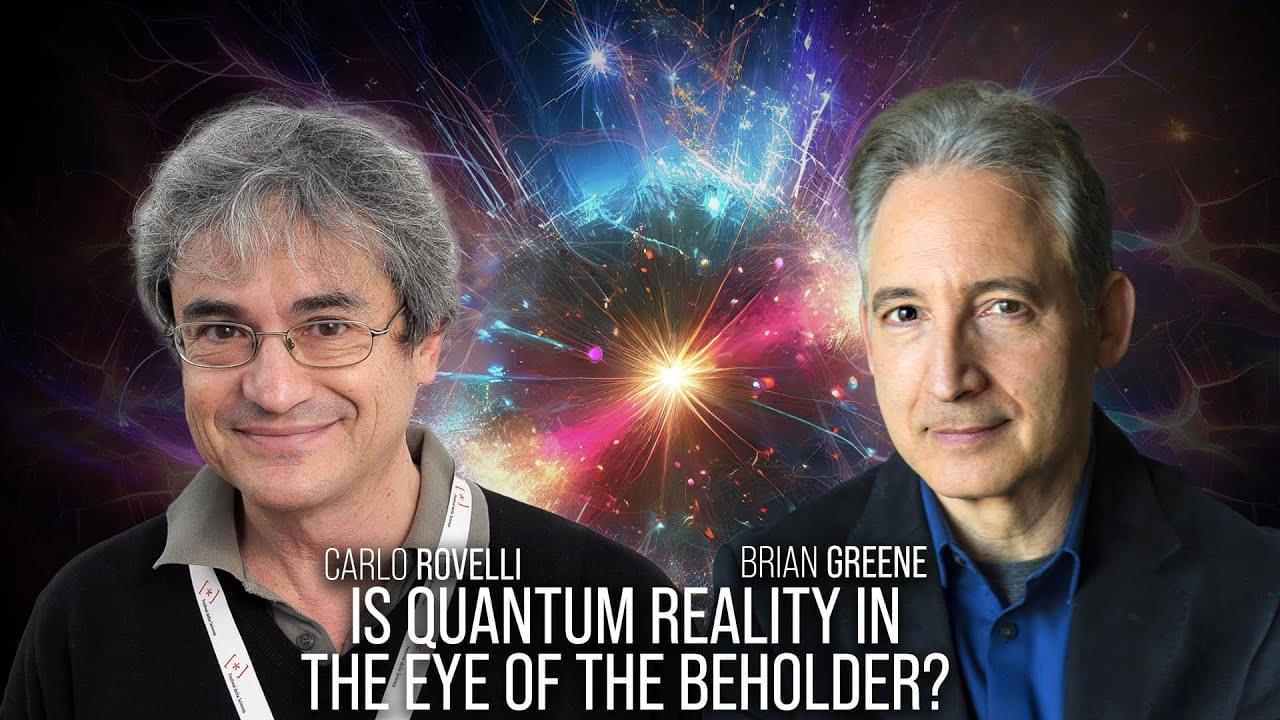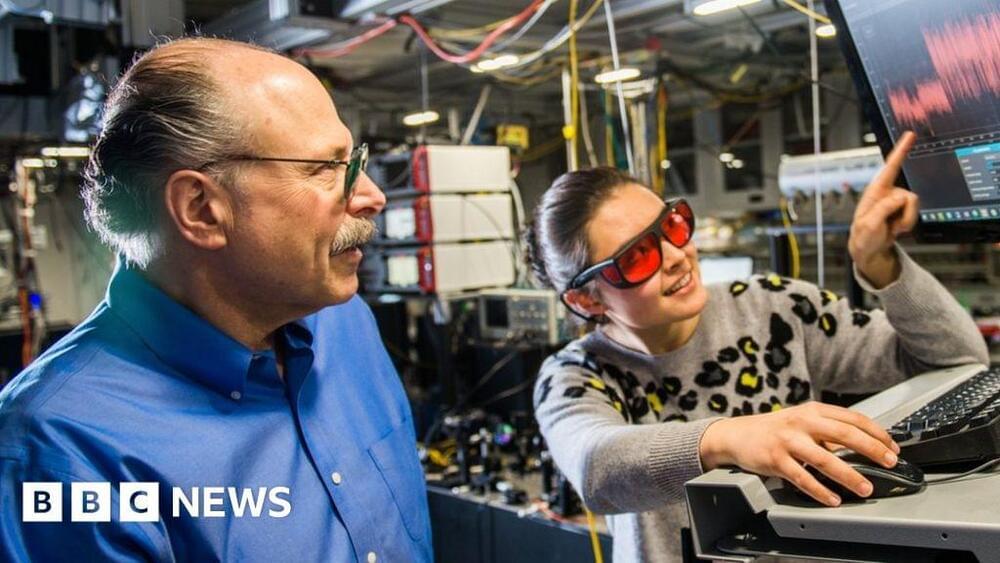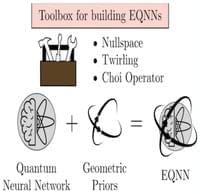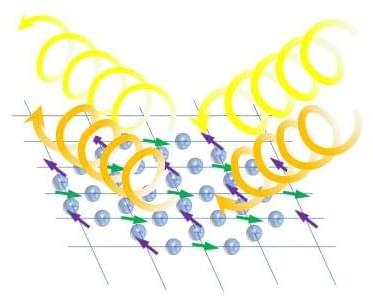May 9, 2024
Atomic-scale telegraphy with light
Posted by Shubham Ghosh Roy in categories: particle physics, quantum physics
In the 1880s Heinrich Hertz discovered that a spark jumping between two pieces of metal emits a flash of light – rapidly oscillating electromagnetic waves – which can be picked up by an antenna. To honour his groundbreaking work, the unit of frequency was named “Hertz” in 1930. Hertz’s findings were later used by Guglielmo Marconi (Nobel Prize in Physics, 1909) to transmit information over long distances creating radiocommunication and revolutionizing wireless telegraphy – shaping the modern world until today.
Scientists from the Department of Physics and the Regensburg Center for Ultrafast Nanoscopy (RUN), University of Regensburg, have now been able to directly observe a quantum version of Hertz’s spark jumping between just two atoms by measuring the oscillogram of the light it emits with temporal precision faster than a single oscillation cycle of the lightwave. This new signal enabled achieving a long-sought goal: atomic spatial resolution in all-optical microscopy.
As an unprecedented communication channel with the quantum world, this signal could be crucial for the development of super-fast quantum technologies as it gives new insights into the processes happening on lengthscales of single atoms and timescales faster than a trillionth of a second.
